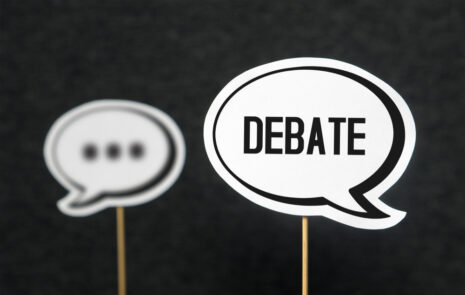
Who’s The Hero In Content Marketing?

The roots of content marketing go back to Ben Franklin, and they spring from the oral tradition of storytelling.
Who’s the hero in your brand story? The brand, or the customer?
That tradition began 70,000 years ago, says Jonah Sachs, author of Winning the Story Wars. And it can inform your content marketing strategy.
Sachs raises a key question for marketers: who’s the hero in your brand story? The brand, or the customer?
To find the answer, he explores the oral tradition, in which:
- People tell stories about the survival of the fittest.
- A human web transmits stories person to person.
- Everyone owns the ideas in the stories. Ideas are shared.
That storytelling tradition has held sway through most of human history. But a century ago, broadcasting upended oral storytelling. Broadcast ads told a wholly different story:
- Ads told stories about the survival of the richest.
- Broadcasting spread stories from one to many. Advertisers spoke through a few controlled touch points.
- Ideas became proprietary.
“Inadequacy marketing” was the story line: “You don’t have what you need. We do. Work with us!” Choosing the right products made the consumer a hero.
But, Sachs observes, the digital era has more in common with storytelling than with broadcasting:
- People tell stories about the survival of the fittest.
- We share stories through the World Wide Web.
- Everyone owns ideas.
The stories that will survive the digital era build on the oral tradition. In these stories, we find the “moral of the story.” The moral reveals a set of shared values.
As Joseph Campbell discovered, many cultures have modeled their stories on the Hero’s Journey. Campbell helped George Lucas dream up Star Wars, which follows the Hero’s Journey story line.
Here’s how the story goes in the Hero’s Journey. The hero starts out as a helpless outsider muddling through the world. (Think Luke Skywalker, or Moses.)
He meets a mentor (Yoda or Yahweh) who says, “So much more is possible. You’re the hero, you have a destiny.” The mentor gives a magic gift (a light sabre or a rod) to the hero, and sends him out alone to find his destiny. In the end, the hero finds a treasure to heal the world.
The central drama in the Hero’s Journey story takes place between the hero and the mentor. What’s special about mentors? They help people believe in their own heroic potential.
Brand stories need characters too. Who’s the hero?
Not you. Not your brand. The hero is your customer! Your brand is the hero’s mentor, who helps the hero do what he didn’t think could be done.
How do the Hero’s lessons apply to brands in the digital era? Brands that speak with a human voice are 50% more valuable than brands that lack a human voice, Sachs says.
For example, Intuit tells customers, “Small business is the hero of the American economy.” Apple says, “You’re more powerful than you think.” IBM says, “We need a smarter planet.” Dove tells women, “You’re more beautiful than you think.”
Through your story, your brand can become a vehicle for the values you want to share with the world. Make your customer the hero. Tell great stories to convey your brand’s values. Teach a truth. Sharing your values encourages people to spread your story.
That’s how great storytelling can help content marketers win.
Sachs spoke at the recent Business Marketing Association BMA 2014 Conference.
Contact Us





